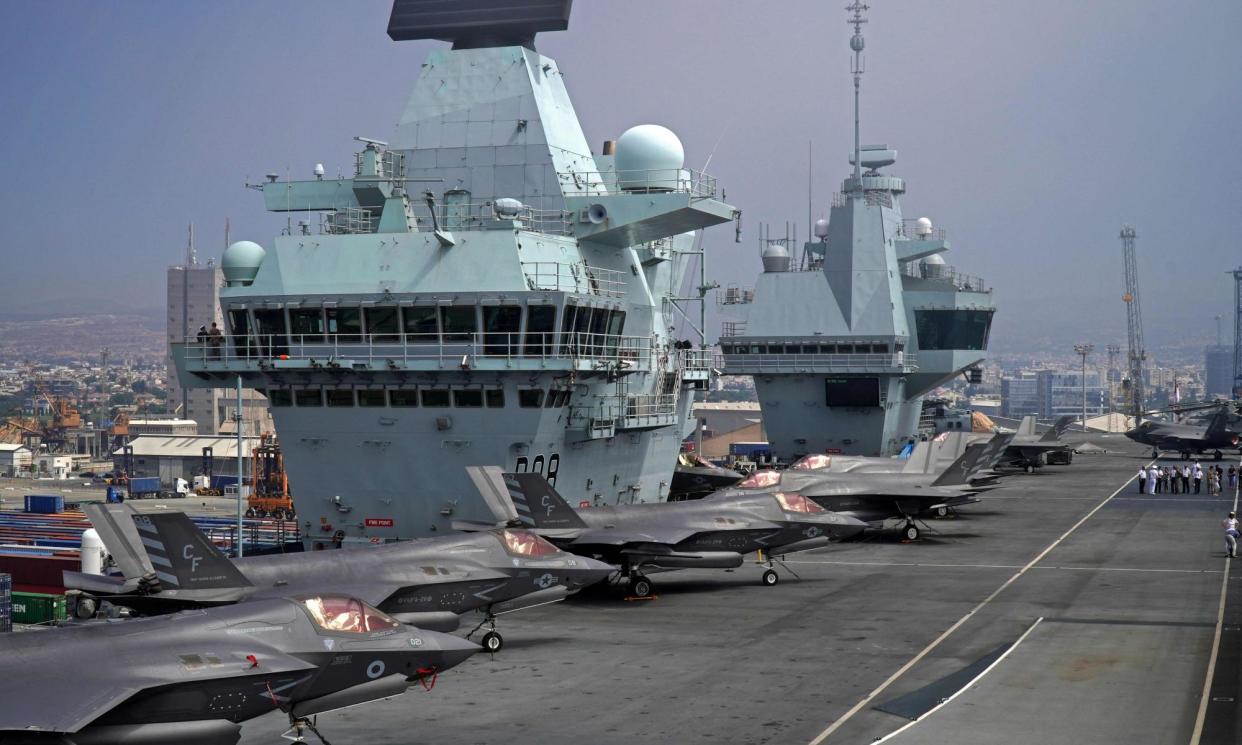Navy to get nearly £2bn of AI and virtual tech to keep warships at sea

The defence secretary has awarded a near-£2bn contract to use artificial intelligence and virtual reality to keep British warships and submarines at sea for longer.
Grant Shapps has announced a £1.85bn deal with the UK arm of defence and aerospace specialist Thales to provide technology services to the Royal Navy.
The 15-year contract will support 450 jobs as technicians work to keep British submarines and warships at sea, amid heightened tensions over naval security as Yemen-based Houthi rebels attack ships in the Red Sea.
The deal highlights the growing spread of AI in the defence world. As part of the deal, the technology will be used to analyse ships’ systems data and identify problems before they escalate. Virtual reality will also be used to allow technicians in Britain to guide operators overseas to carry out physical repairs.
Concerns have been raised about the amount of time Royal Navy vessels have spent in port due to malfunctions or collisions, with Britain’s military strength under increasing scrutiny since Russia’s invasion of Ukraine and escalating tensions in the Middle East. Last month, HMS Chiddingfold reversed into HMS Bangor off the coast of Bahrain.
Under the contract, Thales will work on the ships’ sonar, masts, periscopes and the electronic warfare equipment that enables the navy to detect and target potential threats. It will also work on the sensors and sonar equipment on the continuous at sea deterrent, which has been in place since 1969 and means at least one nuclear warhead-armed submarine is always on operational patrol.
Sources close to the deal said the technology could allow submarines to stay submerged for longer as they would not need to surface for repairs or to receive new equipment, a process that reveals their location.
On a visit to the naval base at Devonport, Plymouth, Shapps said: “In a time of global instability, it is imperative we minimise the time our ships and submarines are out for maintenance.”
Alex Cresswell, the chief executive of Thales in the UK, said: “This £1.8bn contract with Thales will help keep more Royal Navy ships at sea for longer, by harnessing the latest developments in artificial intelligence, data analysis and improved dockland facilities.”
The UK business, which is part of the Paris-headquartered multinational Thales Group, holds a string of government contracts with the Ministry of Defence and Home Office.
It designs satellite propulsion systems and has worked on the Queen Elizabeth class aircraft carriers. In 2019, it bought Gemalto, which holds the contract to make post-Brexit blue passports, for €4.8bn (£4.1bn).

 Yahoo News
Yahoo News 
